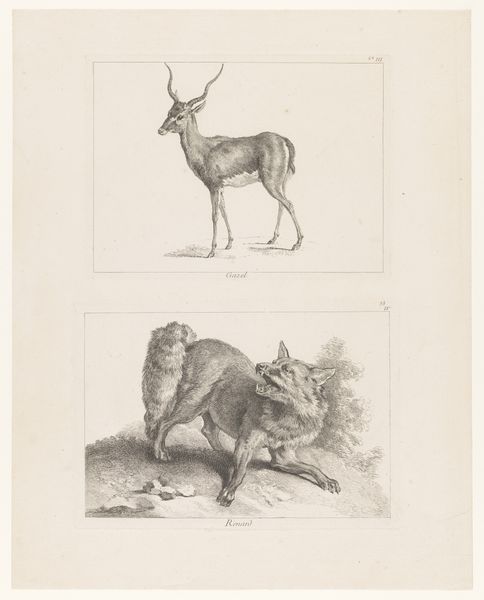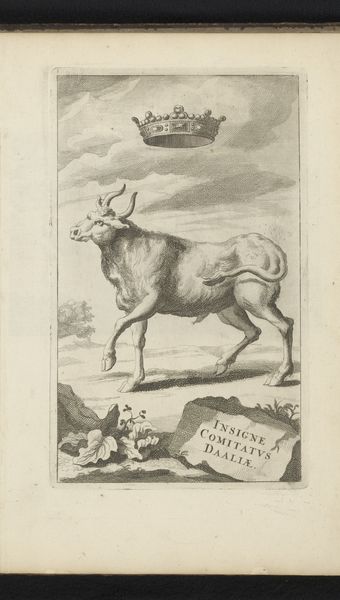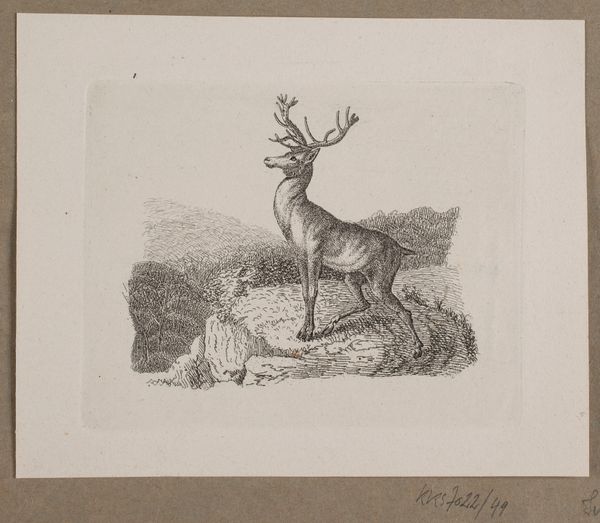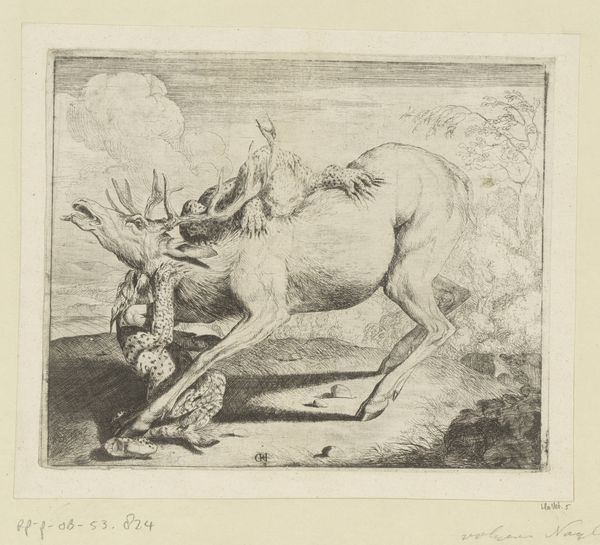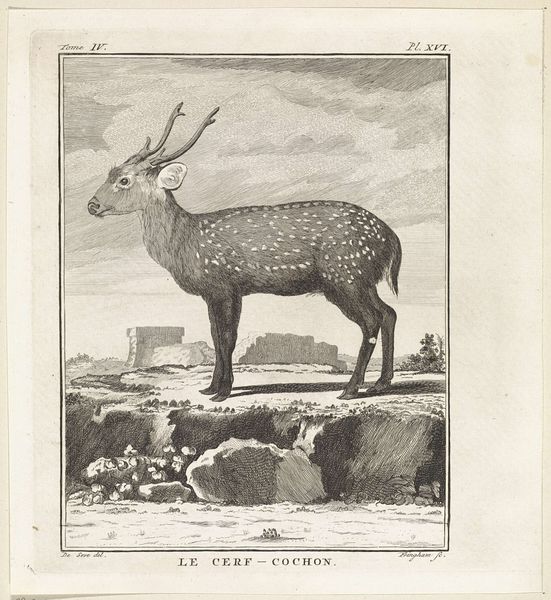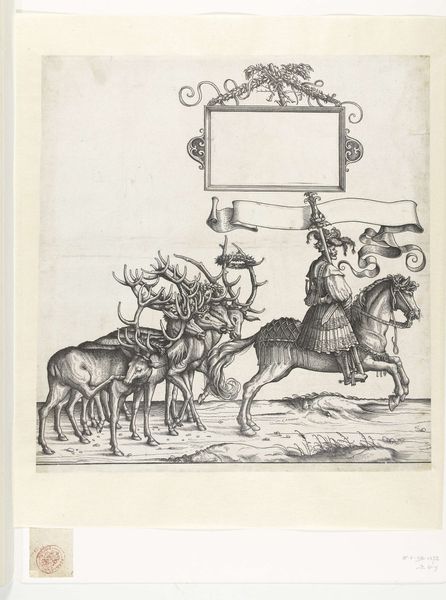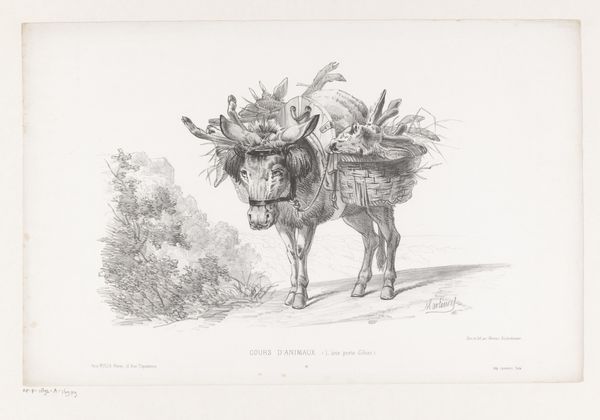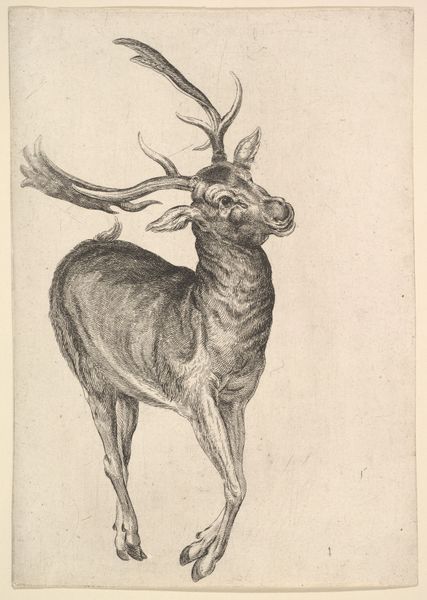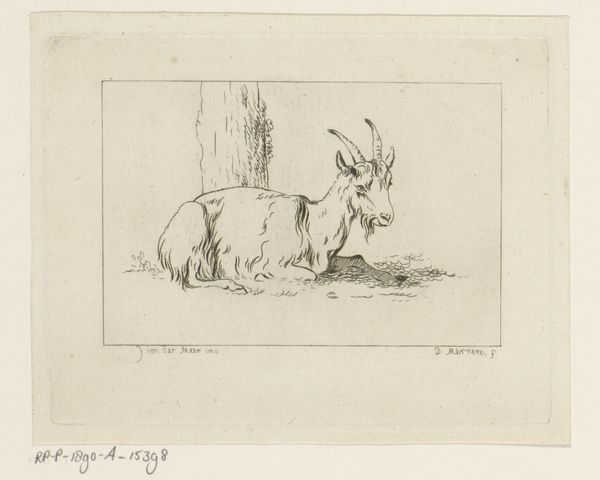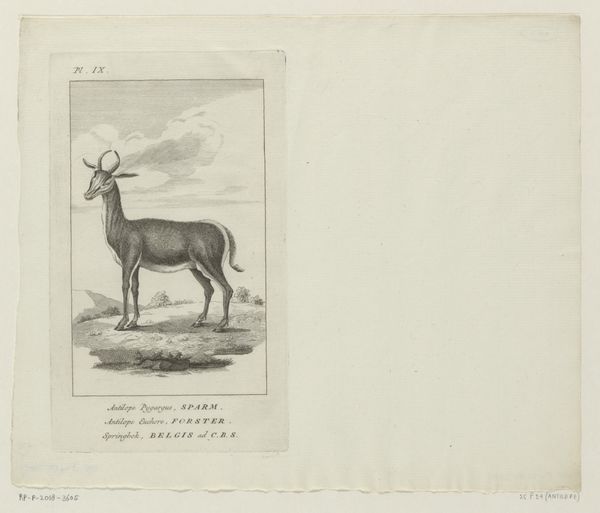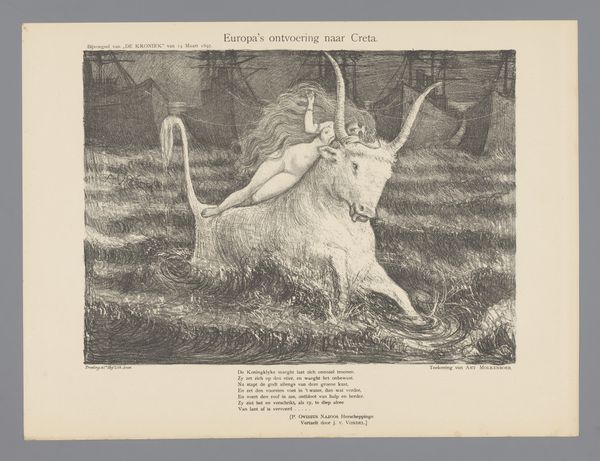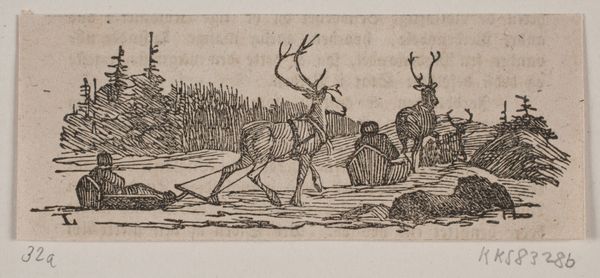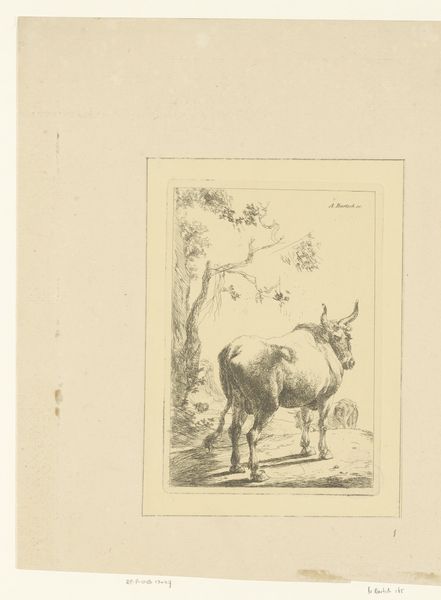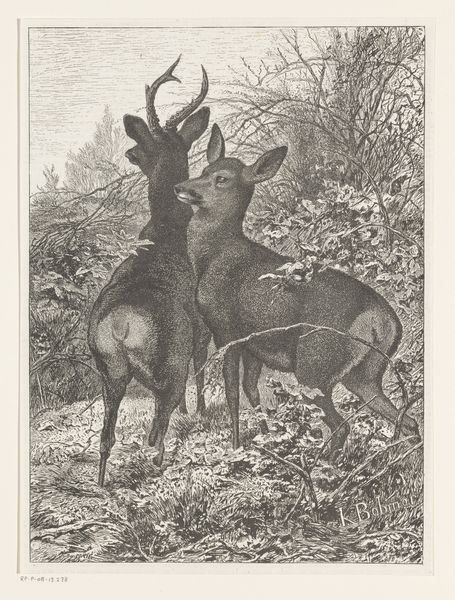
print, engraving
# print
#
landscape
#
figuration
#
history-painting
#
engraving
Dimensions: height 360 mm, width 270 mm
Copyright: Rijks Museum: Open Domain
This drawing from 1561 by L. van Peteghem depicts Juerken, the fool of De Violieren, on horseback, surrounded by his entourage. The fool, a figure found across cultures, embodies a complex symbolism. He represents folly, yet also possesses a unique insight, a critical voice often masked by jest. Notice the fool's exaggerated gestures and attire. These elements, intended to provoke laughter, also carry a deeper meaning. They reflect a subversion of social norms, a release of repressed desires. Consider how the figure of the fool appears in Shakespearean drama or medieval carnivals. In each instance, the fool acts as a mirror, reflecting societal anxieties and challenging established authority. The motif of the fool, in its various forms, taps into our collective psyche. It embodies our own internal contradictions, our capacity for both wisdom and folly. This image, therefore, is not merely a depiction of a historical figure. It is a potent symbol that engages us on a subconscious level, reminding us of the timeless human drama of chaos, order and reinvention.
Comments
No comments
Be the first to comment and join the conversation on the ultimate creative platform.
